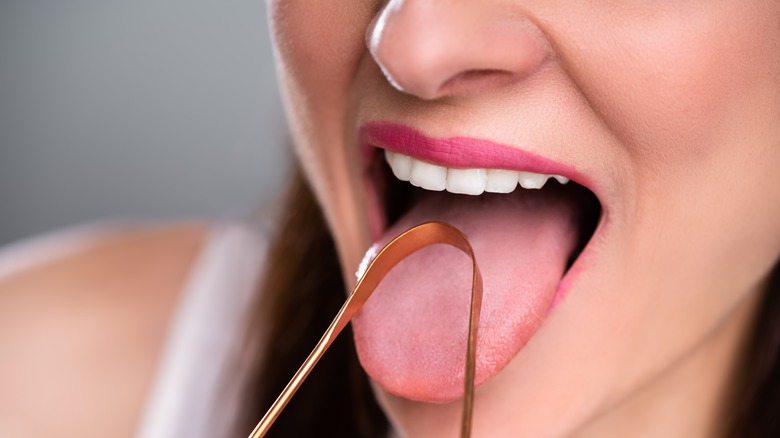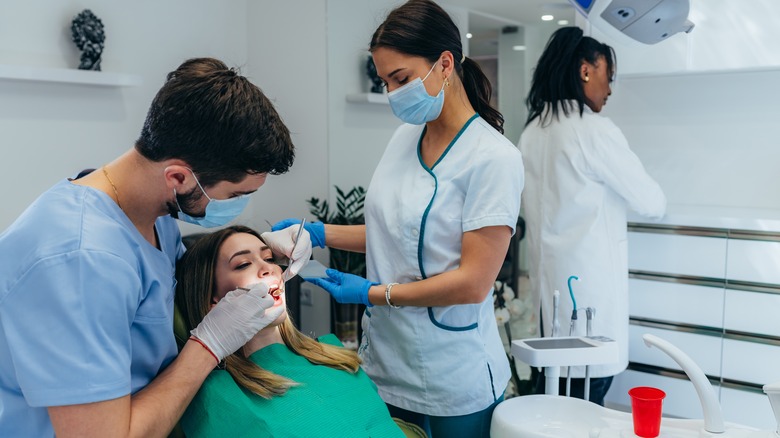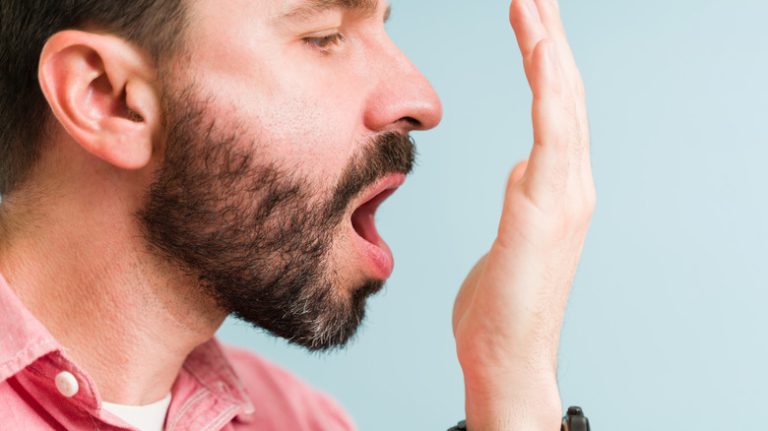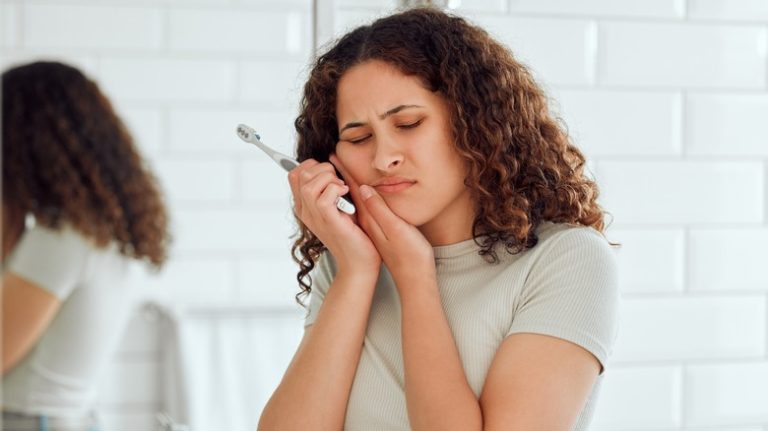If you are experiencing bad breath, it can be a source of embarrassment and social discomfort. The condition is known as “halitosis” and affects around 1 in 4 people worldwide, says the Cleveland Clinic.
The condition has various causes, and treatment often depends on the root cause. Not surprisingly, poor oral hygiene is usually the most common cause of bad breath — when you don’t brush and floss your teeth regularly, food particles and bacteria accumulate, which can promote the growth of odor-producing bacteria. If not removed, these particles continue to accumulate, leading to bad breath and other conditions like cavities.
While occasional bad breath is normal and can be improved with good oral hygiene, persistent bad breath might be caused by a more serious health condition that requires treatment. If you are concerned about your bad breath, seeing a dentist to determine the underlying cause is a good idea. However, there are several things you can do to prevent bad breath before proceeding to see a dentist.
Steps to prevent bad breath

Regular brushing and flossing are the cornerstones of good oral hygiene. The Cleveland Clinic advises brushing your teeth at least twice daily for two minutes each time. They also advise paying special attention to cleaning your tongue, which is important in preventing bad breath. Bacteria can accumulate on your tongue and cause bad breath, per Healthline. You can also choose to use a tongue scraper if needed.
Using mouthwash can also help to prevent bad breath. Use a mouthwash that contains fluoride and antiseptic agents that can kill bacteria hiding in between your teeth and gums, says Healthline. Be sure to follow the manufacturer’s instructions for use.
Staying hydrated is another important step in preventing bad breath. The Cleveland Clinic advises drinking water to help keep your mouth fresh.
Avoiding tobacco, caffeine, and alcohol is also essential for preventing bad breath.
When to see a dentist for bad breath

One situation where you should consider seeing a dentist for bad breath is if it persists despite your best efforts to improve it. If you have tried various home remedies for bad breath, such as brushing and flossing regularly, and the problem persists, it may be time to see a dentist. A dentist can evaluate your oral health and determine if there are underlying issues causing your bad breath.
Bad breath can also indicate oral health problems, such as gum disease or tooth decay, explains the Mayo Clinic. If you are experiencing other symptoms, such as bleeding gums or tooth pain, it’s important to seek dental care. Your dentist can evaluate your oral health and recommend appropriate treatment for the underlying problem. Dry mouth, or xerostomia, can also contribute to bad breath. This is because saliva plays an important role in maintaining oral health by cleansing the mouth and removing food particles.
Finally, bad breath can be a symptom of other medical conditions, such as metabolic conditions like diabetes or digestive issues like gastroesophageal reflux disease (GERD), says the Cleveland Clinic. If your dentist suspects that an underlying medical condition is causing your bad breath, they may refer you to a medical professional for further evaluation and treatment.



